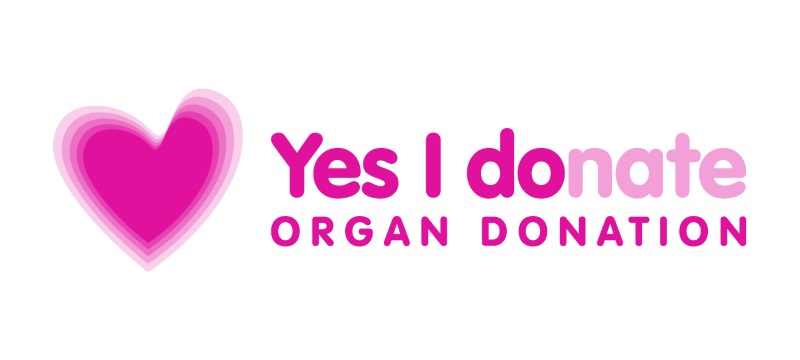Organ donation: Your chance to save a life
For many people, organ donation can be a sensitive subject, but it is an important conversation to have. The opportunity to save another person’s life is one that we all should gladly take. Organ donation does more than transform the life of an individual; it rewards the unconditional love and support from the friends and family that have been there all the way. That’s why for Organ Donation Week this year, we’re filling you in on all you need know about organ donation and how you can save a life.

What is organ donation?
Organ donation is where a person donates their organs and tissues to someone in desperate need of a transplant. You are able to donate some organs while you’re alive – such as a kidney or part of your liver, but most organs are donated after a person has died.
Why is it important?
Organ donation saves thousands of lives in the UK each year. Currently, there are an estimated 6,000 people waiting for a transplant – including roughly 150 children and teenagers. The UK suffers an average of three deaths every day due to the overcrowded waiting list. Just one donor can save up to nine lives.
The issue lies with the number of people currently signing on to the NHS Organ Donor Register. The NHS’ research suggests that 82% of the population definitely want to donate or would consider donating their organs. Yet, just 35% of people across the UK have joined the NHS Organ Donor Register.
Signing up
The NHS Organ Donor Register is available to people of all ages and backgrounds. No matter where you come from or what your medical history may be, everyone is encouraged to become an organ donor. The register is a legal and confidential way to record your decision to be an organ donor. Signing up online only takes a couple of minutes, but those two minutes could provide a lifetime of happiness for someone waiting for a transplant. The registration will ask for some general details, such as your name, address, ethnicity, and religion, as well as which organs you would like to offer for donation. To register, follow the link by clicking here.

Let’s talk
Joining the NHS Organ Donor Register or carrying an organ donor card is an effective means of conveying your decision to be an organ donor. However, this is not definitive. If you were to die in circumstances that allowed for your organs to be available for donation, your family would be consulted before any donation is made. By signing up to the NHS Organ Donor Register your family are likely to support your decision. If you have not signed up, or shown willingness to support organ donation, your next of kin will make the decision for you.
Stop and think for a moment.
In times of grief, facing questions of this nature puts a heavy, unwanted burden onto your family’s shoulders. Having no prior knowledge of your family member’s stance on organ donation only makes the decision more difficult. What would you do?
This is why less than half of uninformed families approached about donation agree to donate a relative’s organs. Being clear about your support for organ donation can save the life of a person in need and save your family the anguish of making the decision themselves.

Changing the way we donate
The current organ donation system in England operates on an ‘opt-in’ basis. You have to actively express your desire to be an organ donor and join the NHS Organ Donor Register.
In August 2018, however, Parliament approved plans to reform organ donation laws by Spring 2020. The new system labelled ‘deemed consent’ or ‘opt-out’ works in reverse to the current scheme deployed by the UK. It presumes consent, with citizens having to actively reject organ donation.
The new ‘deemed consent’ laws are currently underway in Wales and have received some major criticisms. The main backlash focuses on the notion that volunteering for organ donation should be viewed as a courageous, altruistic act, which is then diminished once the law demands it of you.
In response, the government points to the statistics: an ‘opt-out’ system could save up to 700 lives a year. As previously mentioned, NHS research infers that a large majority of the population would sign up for organ donation (82%), but only one third of people take the time to register. This suggests that the system would hardly be going against the population’s will and could certainly reduce the overcrowded waiting list.
How else can you help?
This week is Organ Donation Week for 2018 and it’s the perfect time to spread the word. Raising awareness about organ donation is essential to help save lives. A wonderful way to see the impact you could make on someone’s life by becoming an organ donor is through real life stories. This video entitled “Hugs” shows the heart-warming relationship between two brothers, one of whom, Freddie, had his life saved by an organ donor’s liver.
By sharing this video, and encouraging your friends and family to become organ donors, you can help to change the lives of people like Freddie.
Medstars Medical Concierge Service
Looking for extra guidance when it comes to your healthcare? Sometimes interpreting medical information and making the best decisions can be daunting and complicated. Our private medical concierge service provides easy access to top UK health experts. We guide our patients with genuine choice and trust, offering a bespoke service for anyone in the world seeking private UK healthcare. Learn more about Medstars Medical Concierge Service. Want to learn more about providing our medical concierge service as an employee benefit? Learn more about Medstars Medical Concierge for Business.
